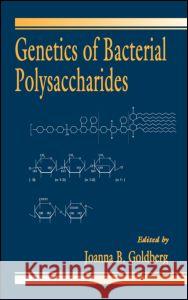Genetics of Bacterial Polysaccharides » książka
Genetics of Bacterial Polysaccharides
ISBN-13: 9780849300219 / Angielski / Twarda / 1999 / 256 str.
Bacterial surface or secreted polysaccharides are molecules that can function as barriers to protect bacterial cells against environmental stresses, as well as act as adhesins or recognition molecules. In some cases, these molecules are immunodominant antigens eliciting a vigorous immune response, while in other cases the expression of polysaccharides camouflages the bacteria from the immune system. Until recently, most studies on the enzymatic steps and regulation of these molecules were performed on the enteric gram negative bacteria Escherichia coli and Salmonella typhimurium. With the advent of modern bacterial genetics, techniques such as construction and characterization of polysaccharide mutants, cloning of genes and complementation of these mutations, and expression of polysaccharides in heterologous bacterial hosts has prompted investigations into the roles and functions of these molecules for many different bacteria.
Here, we present the genetic analysis of polysaccharides from a number of bacteria pathogenic to humans and one symbiotic with plants in hopes that similarities in the experimental approaches as well as finding s from such investigations may lead to a general understanding of polysaccharide synthesis and regulation in various bacteria.
Features











